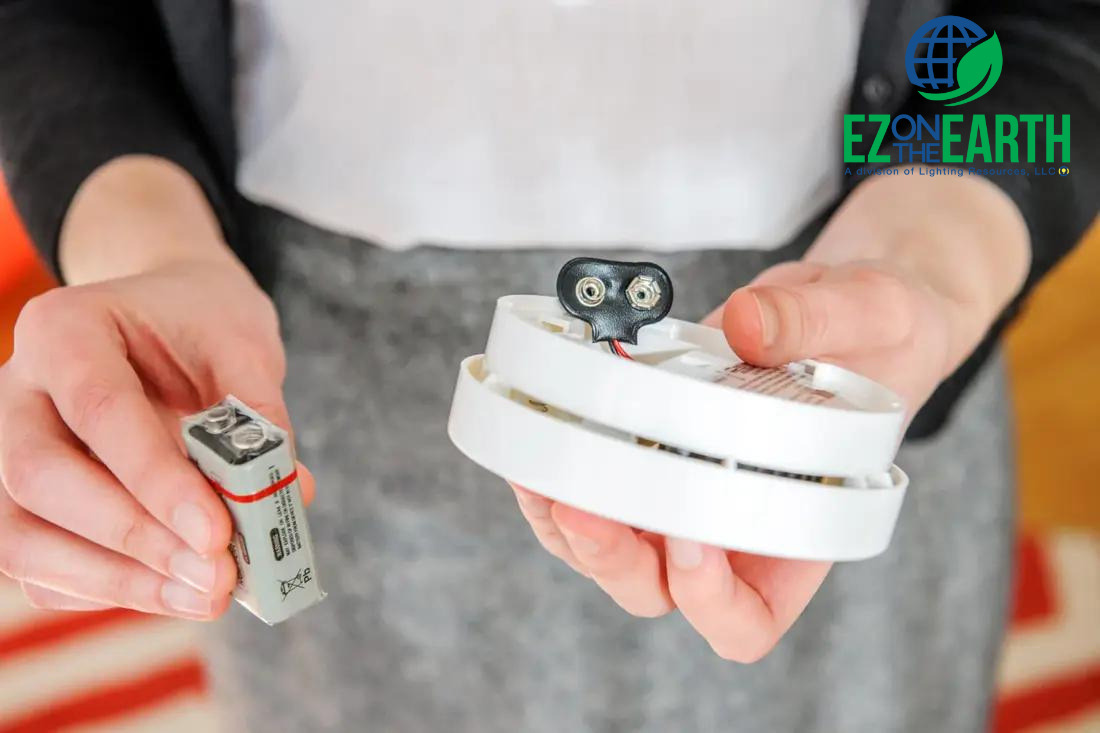Smoke detectors are essential safety devices that help protect homes and businesses by providing early warning of potential fires. However, like all electronic devices, they eventually reach the end of their useful life. Proper disposal of smoke detectors is crucial because they contain materials that can harm the environment if not handled correctly. This article explores the importance of responsible smoke detector disposal, methods for safely disposing of them, and how to minimize environmental impact.
Why Proper Disposal of Smoke Detectors Matters
Most smoke detectors contain small amounts of hazardous materials, such as radioactive substances or batteries, that require special handling. Improper disposal can lead to:
- Environmental Pollution: Hazardous materials in smoke detectors can contaminate soil and water if disposed of in regular household trash.
- Health Risks: Improper handling of radioactive components or leaking batteries can pose health risks to individuals and communities.
- Regulatory Non-Compliance: Some jurisdictions have laws regulating the disposal of electronic waste (e-waste), including smoke detectors, and non-compliance can result in fines.
Types of Smoke Detectors and Their Disposal Needs
There are two main types of smoke detectors, and each has different disposal requirements:
1. Ionization Smoke Detectors
These detectors use a small amount of radioactive material (typically Americium-241) to detect smoke. While the radiation is low and safe during normal use, it requires careful handling at disposal. Special facilities are equipped to safely handle and recycle these detectors.
2. Photoelectric Smoke Detectors
These models use a light sensor to detect smoke and do not contain radioactive materials. They can often be disposed of as e-waste, though it’s important to remove and recycle the batteries first.
Steps for Proper Smoke Detector Disposal
1. Check Local Regulations
Before disposing of a smoke detector, check your local waste management policies. Some municipalities offer special collection services or drop-off locations for hazardous materials and e-waste.
2. Contact the Manufacturer
Many smoke detector manufacturers offer take-back programs. You can contact the company directly to inquire about mailing the device to them for safe recycling or disposal. This is often the best option for ionization smoke detectors.
3. Use E-Waste Recycling Programs
Photoelectric smoke detectors and their batteries can usually be taken to local e-waste recycling centers. Look for certified facilities that adhere to environmental regulations.
4. Remove Batteries
Before disposing of any smoke detector, remove the batteries. Batteries can usually be recycled at designated drop-off points, such as those found in hardware stores or community recycling centers.
5. Dispose of Packaging Materials
If you’re replacing an old smoke detector with a new one, ensure the packaging materials for the new device are recycled appropriately.
Tips for Sustainable Smoke Detector Use
- Choose Long-Life Models: Consider smoke detectors with built-in, sealed batteries that last up to 10 years. These reduce the frequency of disposal and minimize battery waste.
- Regular Maintenance: Regularly test and maintain your smoke detectors to maximize their lifespan and ensure they work efficiently.
- Plan for Bulk Recycling: If you’re replacing multiple smoke detectors, arrange a bulk recycling plan to streamline disposal.
What Not to Do
- Do Not Throw Them in Regular Trash: Smoke detectors, especially ionization types, should never be disposed of with regular household garbage.
- Avoid Dismantling Them Yourself: Attempting to open or dismantle a smoke detector can expose you to hazardous materials. Always leave this to professionals.
The Role of Community Awareness
Raising awareness about proper smoke detector disposal is essential. Community recycling events and educational programs can help individuals and businesses learn how to dispose of electronic waste responsibly. By understanding the importance of proper disposal and taking proactive steps, we can reduce the environmental impact of these vital safety devices.
Final Thoughts
Smoke detectors save lives, but their safe disposal is equally important to protect our environment and health. By following local regulations, utilizing recycling programs, and supporting sustainable practices, we can ensure that these devices continue to benefit society without harming the planet. Always prioritize responsible handling when it’s time to replace your smoke detectors, and encourage others to do the same.










